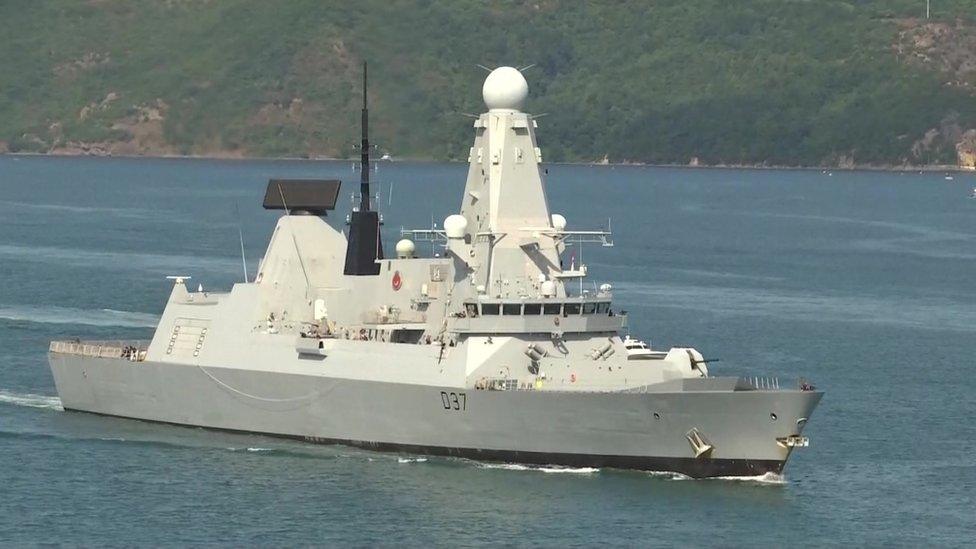Iran tanker seizure: Royal Navy frigate to escort UK ships
- Published
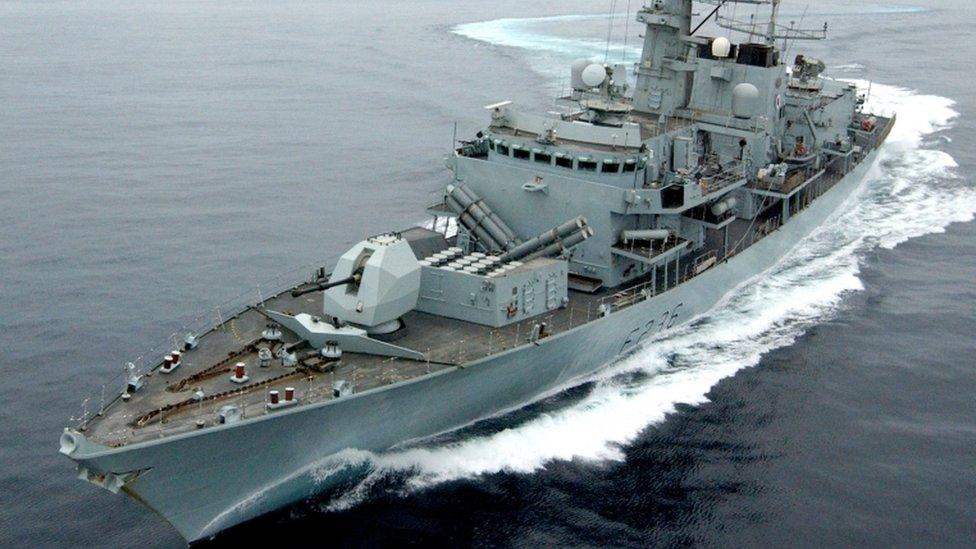
The UK government has said it will provide a Royal Navy escort for British-flagged ships passing through the Strait of Hormuz - amid increasing diplomatic tensions in the Gulf.
Ship owners are being advised to give details of their route so they can be escorted by the frigate HMS Montrose.
The move follows the seizure of the British-flagged tanker Stena Impero by Iran's Revolutionary Guard on Friday.
The ship's owner said the crew is safe and co-operating with officials.
Shipping firm Stena Bulk said its 23 crew members - who are Indian, Russian, Latvian and Filipino - had been able to talk directly to their families for a limited time.
The decision to provide a military escort to merchant shipping follows a meeting of Downing Street's emergency Cobra committee to discuss the situation in the Gulf.
Why does the Strait of Hormuz matter?
"The Royal Navy has been tasked to accompany British-flagged ships through the Strait of Hormuz, either individually or in groups, should sufficient notice be given of their passage," a government spokesman said.
"Freedom of navigation is crucial for the global trading system and world economy, and we will do all we can to defend it," he added.
"This move will provide some much needed safety and reassurance to our shipping community in this uncertain time."
UK Prime Minister Boris Johnson's spokesman added that the government was focused on securing the release of the detained Stena Impero tanker and its crew, while "de-escalating current tensions" with Iran.
The UK Chamber of Shipping said it welcomed the government's decision, calling the announcement "an encouraging step".
Stena Bulk has said it is discussing the release of the tanker and has asked "local authorities" for access to the vessel.
On Wednesday night, the MoD said HMS Montrose escorted two merchant vessels travelling together through the strait.
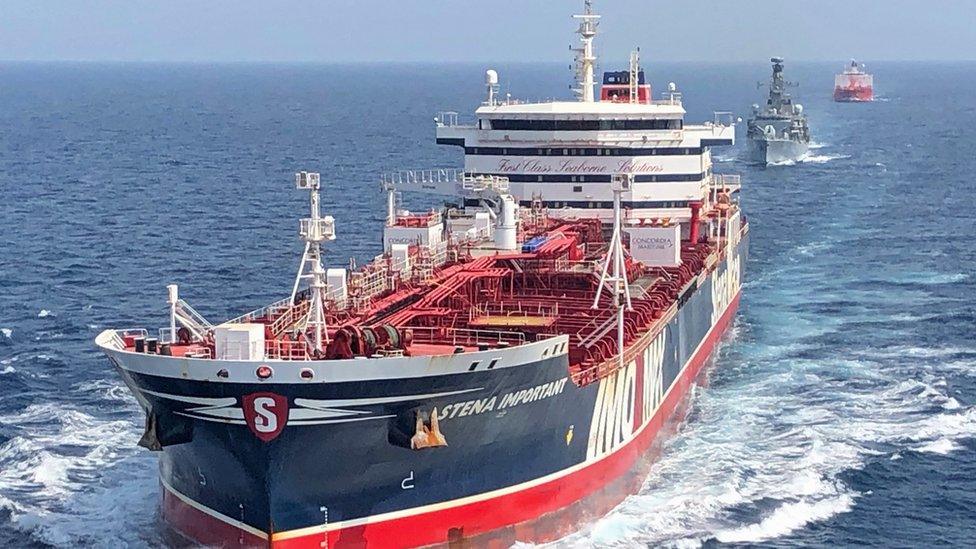
HMS Montrose, centre, escorts the British-flagged Stena Important (front) and Sea Ploeg oil tanker through the Strait of Hormuz, through which a fifth of the world's oil travels
HMS Montrose is currently deployed to the region to provide reassurance for British ships, and earlier this month the MoD said it was forced to move between three Iranian boats that were trying to impede an oil tanker.
Iran denied the incident happened and said there had been no confrontation with any foreign vessels.
That incident followed the UK's decision to seize an Iranian tanker, Grace 1, which London alleges was carrying oil to Syria in breach of EU sanctions. Iran has denied the claim.
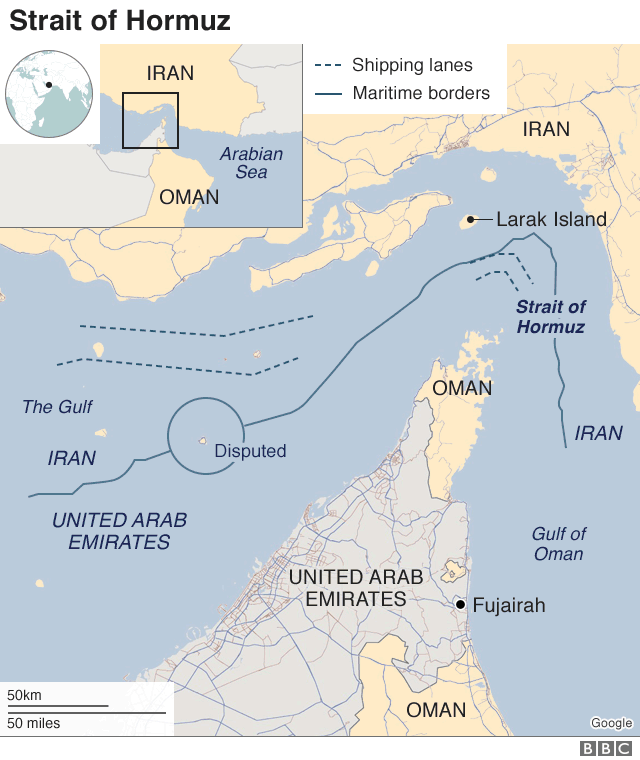
On Monday, the then Foreign Secretary Jeremy Hunt told MPs that the UK would seek to create a European-led mission to ensure safe passage of international vessels in the Gulf.
The new scheme would have a mandate to ensure freedom of navigation of international ships, the Foreign Office has said.
But, while the mission would be implemented "as quickly as possible", Mr Hunt insisted it would not include the US as part of President Trump's policy of "maximum pressure" on Tehran.
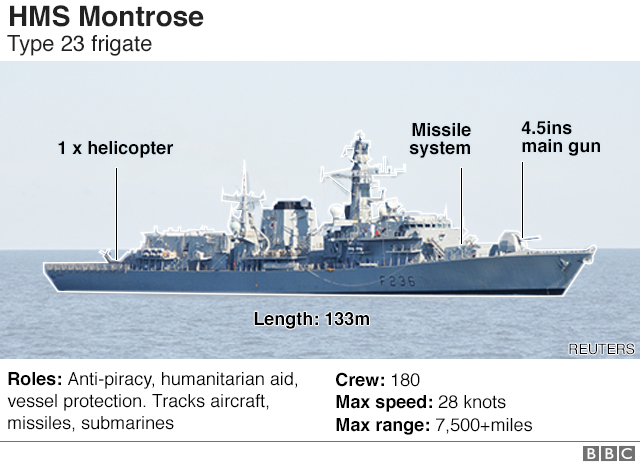
In April, the US tightened its own sanctions on Iran, which it had re-imposed after it withdrew from a 2015 nuclear deal.
The UK government has remained committed to the deal, which curbs Iran's nuclear activities in return for the lifting of sanctions.
In a joint statement issued earlier this month, UK, French and German leaders said they were "deeply troubled" by events in the Gulf.
They added: "We believe the time has come to act responsibly and seek a path to stop the escalation of tensions and resume dialogue."
- Published19 August 2019
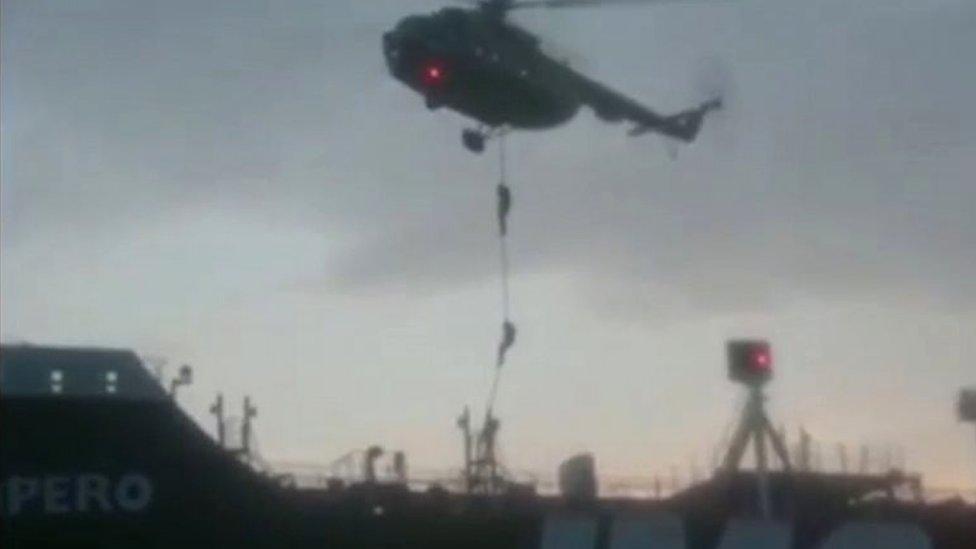
- Published24 July 2019
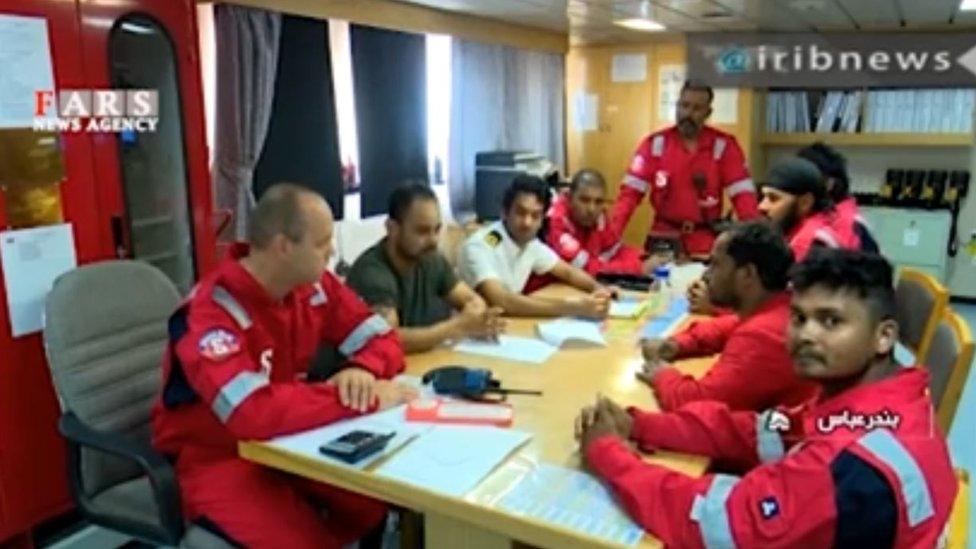
- Published12 July 2019
